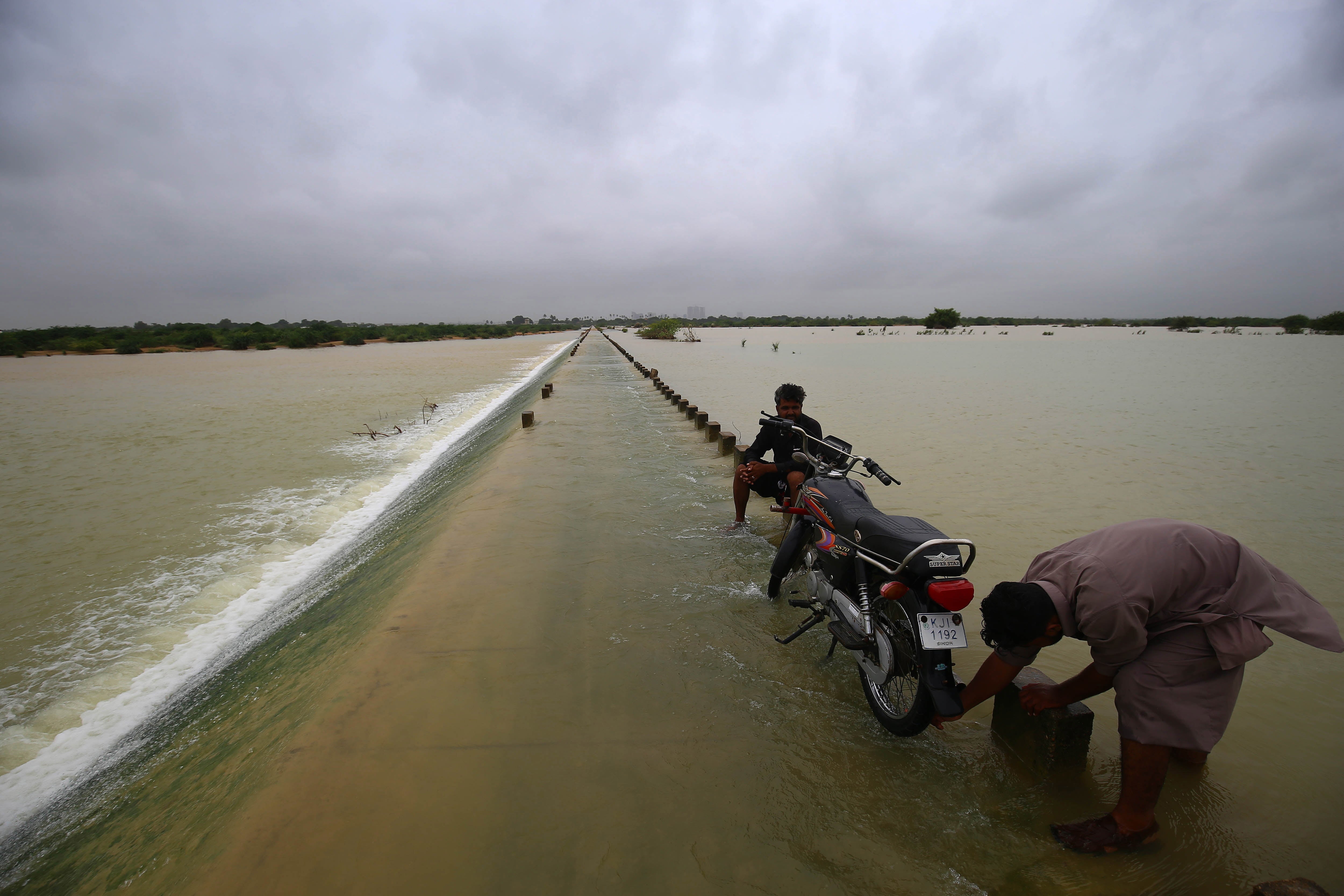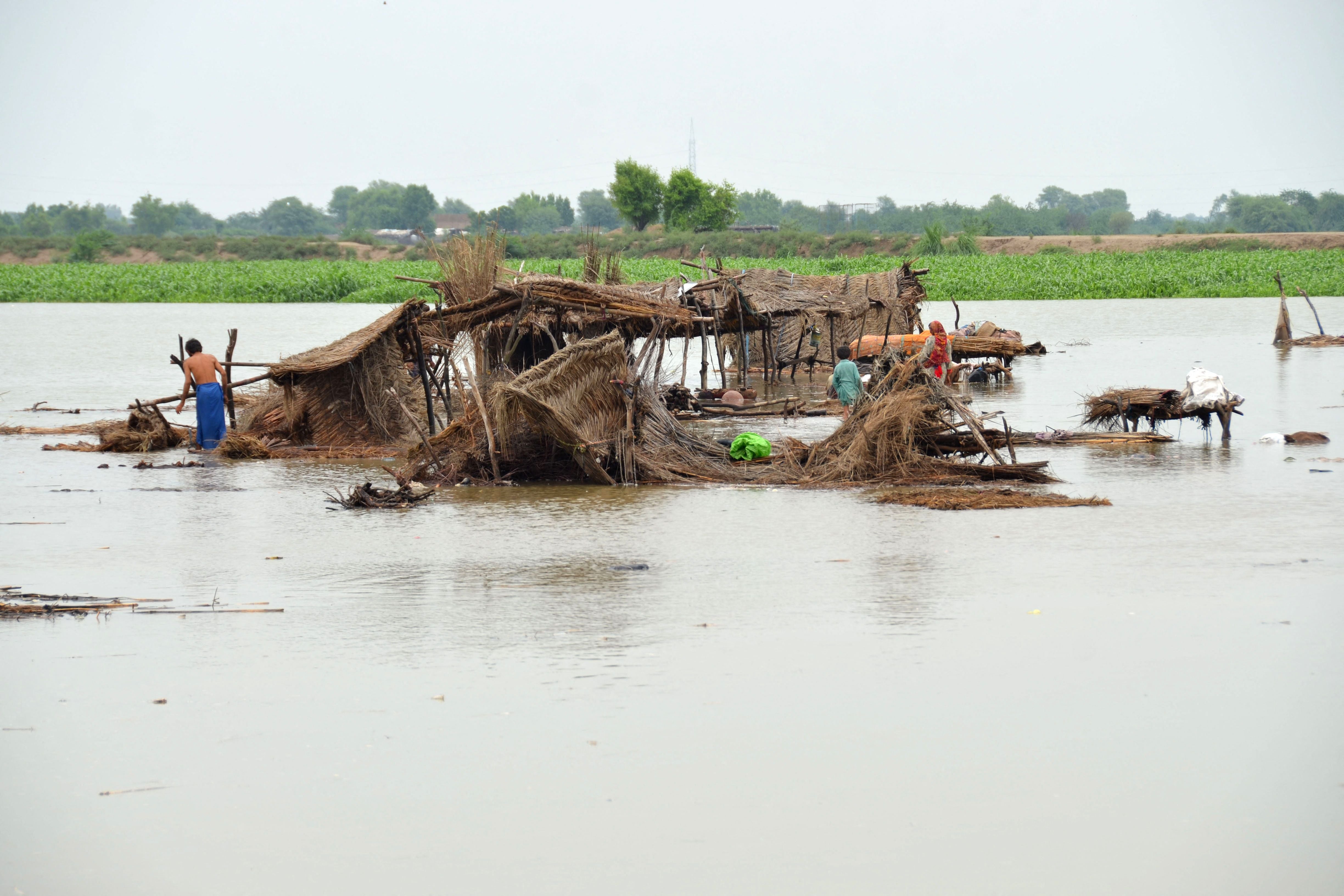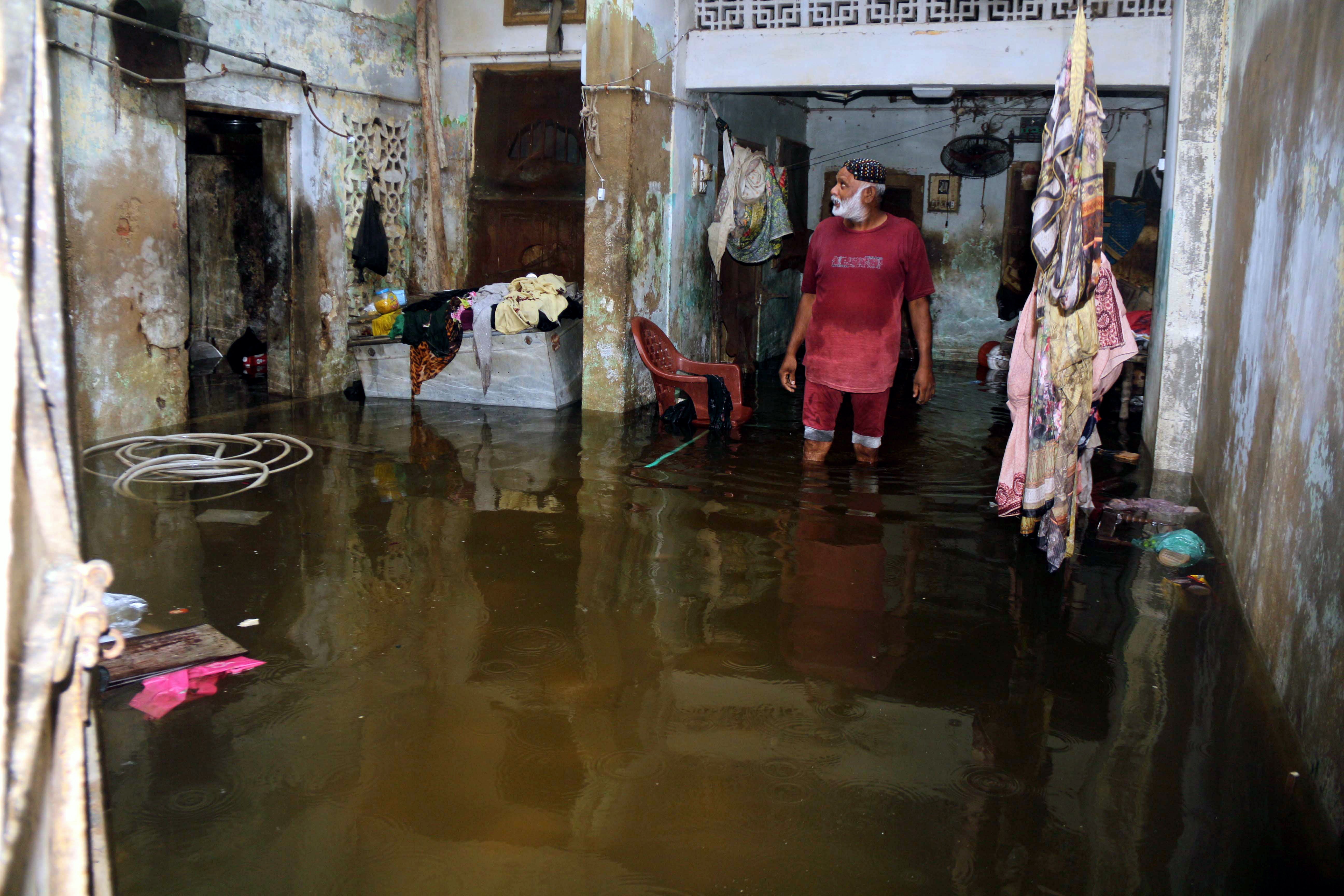Pakistan pleads for international assistance after massive floods kill 900 people
‘Heartbreaking scenes of rain and flood devastation are emerging from all over the country’
Pakistan has urged international partners to help with relief efforts after massive floods triggered by torrential rain last month left at least 903 dead.
Monsoon rains have affected more than 30 million people over the last few weeks, the country’s climate change minister said on Thursday, calling the situation a “climate-induced humanitarian disaster of epic proportions”.
“No question of the provinces or Islamabad being able to cope with this magnitude of climate catastrophe on their own,” tweeted Sherry Rehman, the federal minister for climate change.
“Lives r at risk, thousands homeless. Int’l partners need to mobilise assistance [sic].”
She said “heartbreaking scenes of rain and flood devastation are emerging from all over the country” and cited data from the country’s National Disaster Management Authority (NDMA).
Ms Rehman added that the southern province of Sindh, hardest hit in the last few days, had requested 1 million tents for affected people.
The agency updated its death toll on Wednesday, revealing 903 people, including 326 children, have died in rain-related incidents since April.
Around 1,300 people have been injured, according to the NDMA, while some 2.3 million people have been affected due to floods and rain since mid June, according to the United Nations Office for Coordination of Humanitarian Affairs (OCHA).
The NDMA said in a report that in the last 24 hours 150km (93 miles) of roads had been damaged across the country and over 82,000 homes have been partially or fully damaged.
The UN agency said the floods have destroyed at least 95,350 houses and damaged a further 224,100.
Flooding has further exacerbated problems for the country which is reeling under economic crisis.
Prime Minister Shahbaz Sharif issued an appeal on Wednesday and urged philanthropists to help flood-affected areas in Pakistan while on a two-day official visit to Qatar.
He cut short his trip and canceled his visit to London due to the situation.

Managing relief efforts, reconstruction and rescue remains a challenge for cash-strapped Pakistan, which is forced to cut spending to ensure the International Monetary Fund approves the release of much-needed bailout money.
Sindh, in the southeast and Balochistan in the southwest – the two most improvished provinces – have been the most hit, with 293 and 230 deaths respectively.

More than 504,000 livestock have been killed, nearly all of them in Balochistan, while nearly 3,000km (1,800 miles) of roads and 129 bridges have been damaged, impeding movement around flood-affected areas.
Also read: Drone footage shows scale of flood devastation in Balochistan
Visuals broadcast on Pakistan television showed people, including women and children, wading through waist-deep waters, carrying essential items on their heads as water gushed through their homes.
In some towns, families have struggled to find a place to bury their loved ones, Geo Tv reported, as graveyards were flooded. Mourning family members have been seen carrying away their loved ones from submerged homes to lay them to rest.
The national average rainfall for July was 200 per cent above average, Sardar Sarfaraz, a senior official at the metrological office told Reuters, making it the wettest July on record since 1961.
In the commercial capital Karachi a bridge linking it to Balochistan was swept away, while dozens of small dams in the province were overwhelmed.

Several people have died in the city from electrocution due to exposed wires as well.
Weather experts have blamed the erratic weather conditions on the climate crisis.
Ms Rehman compared the current catastrophe to the 2010 floods – the worst in recent memory in Pakistan.
“It is a climate catastrophe of epic scale, bringing in its wake the humanitarian crisis that could well match the magnitude of the big flood that was witnessed in 2010,” said Ms Rehman.
Join our commenting forum
Join thought-provoking conversations, follow other Independent readers and see their replies
Comments





Bookmark popover
Removed from bookmarks